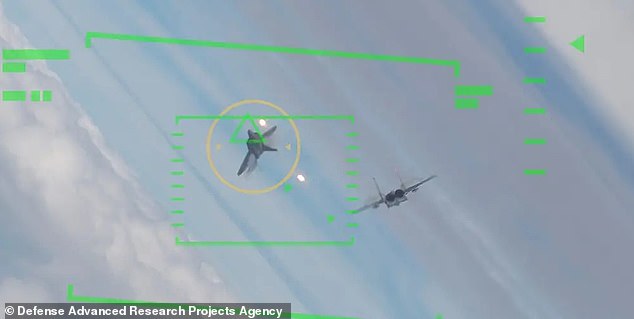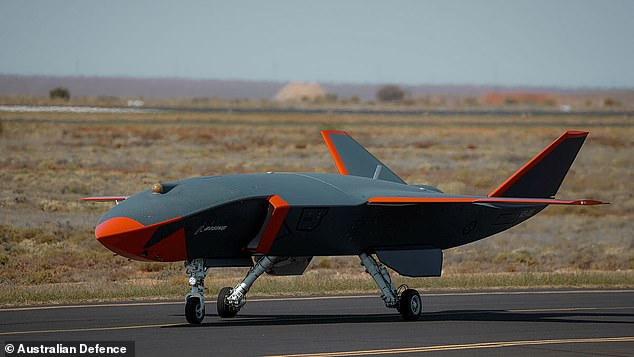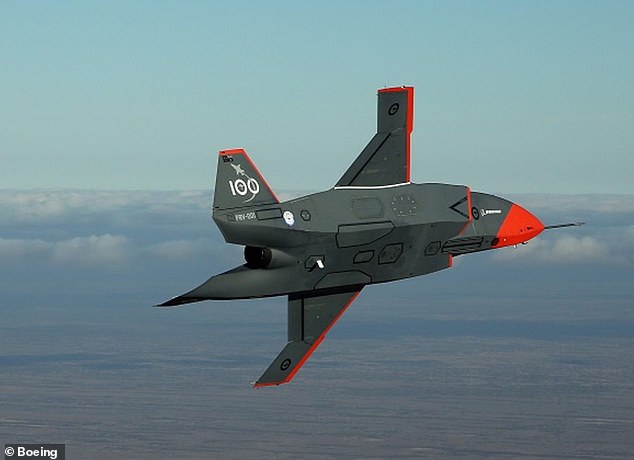Joe Rogan left stunned as US security advisor reveals how AI will take over in future wars
Joe Rogan was stunned to learn how AI will be the main combatants in future wars.
The famed podcaster was taken back when his podcast guest, Homeland Security Advisor Marc Andreessen, suggested that AI-powered aircraft that travel five times the speed of sound, Mach 5, will become more common “within a few years.”
“Imagine a thousand of these things coming toward you on the horizon,” Andreessen said. “It really changes the fundamental equation of war.”
He explains that instead of needing the most soldiers and equipment to win, people with the most technology and money will take over.
Andreessen also noted that there are “a lot of reasons” why he believes a future of AI-controlled fighter jets is all but inevitable.
“Part of that is simply the speed of processing,” Andreessen explains.
“But the other big thing is that if there isn’t a human on the plane, there isn’t […] ‘the spam in the can.’
“You don’t have the human body on the plane to keep you alive, which means you can be a lot faster,” the White House adviser continued, “much higher G-forces.”
Swarms of “thousands” of AI-controlled fighter jets are coming “within a few years,” a White House homeland security adviser said in a new interview with famed podcaster Joe Rogan (above). The comedian and presenter called the dystopian near-future scenario ‘so horrific’
![Joe Rogan left stunned as US security advisor reveals how AI will take over in future wars 2 Billionaire venture capitalist Marc Andreessen (pictured) – a member of the White House Homeland Security Advisory Council – told Rogan that 'it will be common to have Mach 5 jet drones [...] you want to imagine there's a thousand of these things on the horizon'](https://nybreaking.com/wp-content/uploads/2024/11/1732738197_507_Joe-Rogan-left-stunned-as-US-security-advisor-reveals-how.jpg)
Billionaire venture capitalist Marc Andreessen (pictured) – a member of the White House Homeland Security Advisory Council – told Rogan that ‘it will be common to have Mach 5 jet drones […] you want to imagine there’s a thousand of these things on the horizon’
Rogan discussed how humanity is worried “about the Terminators taking over the world,” but suggested that AI-powered killer planes are our way of letting them rule us.
As evidence, Rogan pointed to a nail-biting series of simulated dogfights in 2020 in which an AI pilot shot down a US Air Force F16 Top Gun five out of five times.
“The AI-controlled jets won 100 percent of the time,” Rogan told Andreessen, prompting the consultant to reveal his shocking predictions.
The agile, smaller, fully automated fighter jets, Andreessen further explained, will be able to perform breakneck air combat maneuvers that would otherwise cause a human pilot to lose consciousness or be crushed by the intense shifts in momentum.
Rogan joked that the AI flying aces would also be more desirable to military planners because of their strict logic: “There’s no option for anyone to go crazy […] There is no human element.”
After making his case that AI jet drones, which are cheaper to produce due to their size, will one day zoom across the battlefield en masse at five times the speed of sound (5 Mach), Andreessen then explained how these coming swarms ‘would change the world’. fundamental equation of war.’

Above is the simulation seen from the virtual fighter jet. The Air Force hopes an AI-controlled combat drone can respond more quickly to enemy aircraft in combat
“Basically, in the past, the people who won wars were the people who had the most men and the most equipment,” he told Rogan.
“In this drone world we’re talking about,” he continued, “it’s going to be the people with the most money and the best technology.”
“Small advanced states, like Singapore,” Andreessen cited as an example, “will be able to punch well above their weight.”
“And then large economically and technologically backward states that would normally have won will now lose,” he added. ‘It will be a recalibration.’
The actions of the White House adviser The Joe Rogan Experiencereleased Tuesday, echoed comments from another billionaire tech mogul, Elon Musk, who now has the ear of newly elected President Donald Trump.
‘Manned fighter jets are an inefficient way to extend the range of missiles or drop bombs. A reusable drone can do this without the overhead of a human pilot,” Musk wrote a post on his social media site X.com last Sunday.
The podcast and Musk’s comments also come as private aerospace companies are quietly developing AI-driven war machines.

A prototype of Boeing’s Ghost Bat (above) has already managed to prove itself to the Royal Australian Air Force – which paid more than $531 million (USD) for the privilege of one day deploying the killer AI drone fleet in to arm a struggling aerospace company with ‘attack capability’. ‘

With approximately 53 cubic feet of storage capacity in the nose for interchangeable payloads, Boeing’s Ghost Bats could one day carry a variety of bombs and munitions, including multiple tactical nuclear weapons.
Aerospace giant Boeing recently proposed that the fleet of ‘unmanned’ killer planes, piloted by ‘artificial intelligence’ and dubbed MQ-28 Ghost Bats, would number in the thousands for the US alone.
With approximately 53 cubic feet of storage capacity in the nose for interchangeable payloads, Boeing’s Ghost Bats could one day carry a variety of bombs and munitions, including multiple tactical nuclear weapons.
Currently, three prototypes of the Ghost Bat have been built and tested in Australia for the Royal Australian Air Force (RAAF), with at least one delivered to the United States for domestic testing and integration trials.
However, critics told DailyMail.com in September that Boeing’s plans raise concerns about public safety, national security and simply “a good use of taxpayer money.”
“Boeing’s track record doesn’t seem to indicate that this is necessarily the best way to implement this kind of thing,” a former State Department official, Steven Feldstein, told DailyMail.com.
Boeing is in the running for a $6 billion contract with the US Air Force, which wants 1,000 AI-controlled fighter jets that can fly 30 feet above the ground at a speed of 600 miles per hour and make moves that are too dangerous are for manned aircraft.
The jets would bolster the current ailing and aging fleet, which leaders say is the smallest and oldest since the Air Force became a separate service in 1947.
In addition to Boeing, Lockheed Martin, Northrop Grumman, General Atomics and Anduril Industries are also eyeing the contract.
But only the Boeing Ghost Bat has flown publicly.
However, the Air Force suspended the contract award this month to reconsider the aircraft’s requirements for a fleet ready to replace the stealthy F-22 Raptor.
